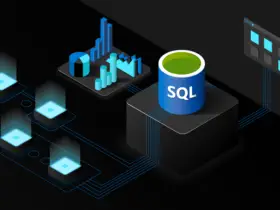

There are tons of ways to install an application on a Linux system. Most of the methods are so conventional and easy to install. If we look at the package extensions of different Linux distributions, Debian and Ubuntu Linux use the .dep packages. RedHat and Fedora use the .rpm packages to execute and install the package. But what if you can’t find a suitable, installable, and compiled package for a specific package? No worries, you can always find either a .run package file that you can install on your Linux system.
The .run file is the goto run file of a complied package, but they are not an actual package that you can conventionally execute on Linux. However, there are methods that you can apply to make the .run files executable on a Linux system.
Source of .run Packages
If you are a programmer, maybe you already know the source of the .run files. This type of file is created by developers for either quality checking or building a binary package to test the package. But sometimes undergraduate level research students also build .run packages to test some features of any application.
Many developers and users believe that .run files are the source code of any package. I might say that source code is the raw code of any package to edit the code in a script. On the other hand, the .run files are the developed and compiled versions of source codes. As GitHub is the largest repository of source code and packages, you can often find .run packages on GitHub.
Execute .run Packages on Linux
If you are a newbie on Linux, it could be challenging to find a method of executing .run package files on Linux. We have seen what a .run package file is and where they come from. As the .run files are not conventional packages, you can’t execute them on Linux in a traditional method. No matter what the actual source of the file is or which distro you’re using, in this post, we will see how you can execute .run files on a Linux system.
Download .run Packages
Typically Linux users prefer to install the .dep, .rpm, and other package files to install it on the system. Some software developers willingly provide the .run packages on their official website; you can also find the binary and run packages on any package’s official website.
If we visit the website of Xampp, we can find a link to download the .run package of Xampp. Download the file and keep it inside your system.

1. Execute the .run Package on Linux
Executing a .run package on a Linux system is pretty similar to executing a .bin package. However, we will now see how you can execute the .run package on your Linux system. Here, we will use the .run package of XAMPP that you have downloaded earlier.
First, run the cd command on your terminal shell to locate the .run package. Then run the following change mode command with the root privileges given below to permit the execution process.
cd Downloads
ls
Finally, run the dot slash (./) command to execute the .run package on your Linux system.
sudo chmod +x xampp-linux-x64-7.4.13-0-installer.run
./xampp-linux-x64-7.4.13-0-installer.run

The .run and .deb packages are not the conventional types of packages we usually install on Linux systems. The .run packages are suitable for testing and simulation tasks. Installing .run files are not so much complicated on a Linux system, but removing them could be complicated. You might need to know which path you used to execute the files.
Moreover, if you download the .run packages from an unknown or suspicious source, you should be more careful while executing the .run packages on your Linux system. I have described how you can download and execute the .run packages on a Linux system in the entire post. You can also use the same method to execute the .sh packages on a Linux system.
If you like this post and find it useful, please share it with your friends and the Linux community. We also encourage you to write down your opinions regarding this post in the comment section.




























Leave a Reply